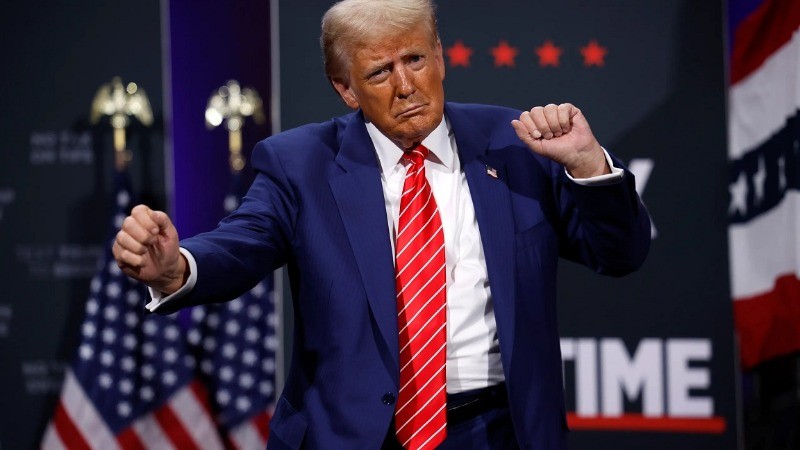
As Donald Trump gets ready to return to office in January, immigration has again become a central topic of debate. His rhetoric signals plans to carry out the largest mass deportation operation in U.S. history, targeting undocumented immigrants. However, his tough stance on immigration goes beyond deportations, extending to visa programs that are crucial for many Indian nationals.
Trump’s focus on non-immigrant visa programs, such as H-1B, L-1, and F-1, has caused growing anxiety among visa holders and their families, who now fear stricter regulations and potential rollbacks of current policies.
A clear sign that Trump is committed to reshaping immigration policies came when news emerged that he is likely to announce Stephen Miller as his White House deputy chief of staff for policy. Miller, known for his hardline views on immigration, is expected to play a major role in influencing future policies, particularly those relating to visa regulations.
Miller previously served as a senior adviser and speechwriter during Trump’s first term. His new position makes him a key figure in shaping the administration's immigration agenda, signaling a return to stricter enforcement measures.
For many Indian professionals currently on work visas, Miller’s appointment is causing concern. One tech executive from Northern Virginia, who is on an H-1B visa, expressed unease over the uncertainty surrounding Miller’s approach. “All eyes will be on Miller and the moves he’s going to make,” the executive said, adding that he is concerned about misinformation suggesting that Miller might even push for denaturalization processes. The executive has been following Miller on social media to stay updated on his policies.
A major fear is the potential rollback of the H4-EAD work authorization program, which allows spouses of H-1B visa holders to work in the U.S. This program was nearly eliminated during Trump’s first term, though legal challenges stopped it. However, a renewed push to eliminate H4-EAD could disrupt families that depend on dual incomes. Anushka Kapoor, a Seattle-based professional on an H4 EAD, recalled the anxiety from Trump’s previous term and said, “Last time, they were unable to implement it, so we remain hopeful. But the uncertainty is still unsettling.”
Many are concerned that Trump’s policies could lead to higher visa denial rates and stricter scrutiny of applications. Data from his first term showed a significant rise in visa denials, reaching 18% for non-immigrant work visas, compared to just 3.2% in recent years. Similarly, the rate of Requests for Evidence (RFEs) under Trump was 34%, while under subsequent administrations, it dropped to about 12%.
The potential for stricter requirements for H-1B visa applicants looms large. Proposals to limit visas to individuals with advanced degrees or to raise the wage floor for visa holders could reduce the number of eligible applicants while increasing labor costs for companies. Some in the Indian American community, however, support these changes, such as Lali Kumar, a professional from Great Falls, VA, who believes that wage parity should be implemented. “Advanced degree holders should be paid the same as regular Americans,” Kumar said. “This way, H-1B holders won’t have a cost advantage, which could limit job opportunities for Americans.”
As Trump’s policies take shape, many legal immigrants, particularly those in the tech sector, are bracing for a more challenging immigration process. Whether it’s adjusting to higher scrutiny, dealing with potential changes in wage requirements, or securing legal status, the future remains uncertain. Many in the Indian American community are preparing for tough times ahead, unsure of how the new administration will impact their work and family life.